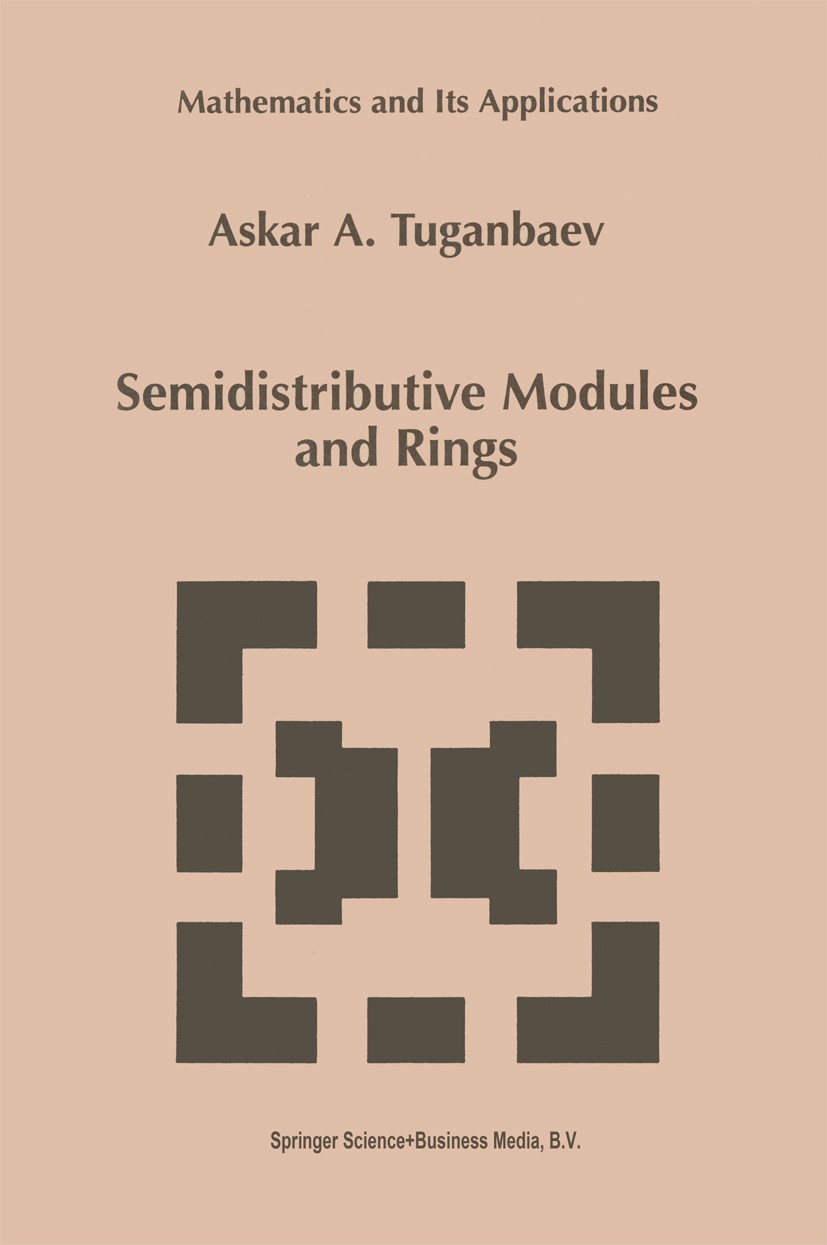| 书目名称 | Semidistributive Modules and Rings | | 编辑 | Askar A. Tuganbaev | | 视频video | http://file.papertrans.cn/865/864916/864916.mp4 | | 丛书名称 | Mathematics and Its Applications | | 图书封面 |  | | 描述 | A module M is called distributive if the lattice Lat(M) of all its submodules is distributive, i.e., Fn(G + H) = FnG + FnH for all submodules F,G, and H of the module M. A module M is called uniserial if all its submodules are comparable with respect to inclusion, i.e., the lattice Lat(M) is a chain. Any direct sum of distributive (resp. uniserial) modules is called a semidistributive (resp. serial) module. The class of distributive (resp. semidistributive) modules properly cont.ains the class ofall uniserial (resp. serial) modules. In particular, all simple (resp. semisimple) modules are distributive (resp. semidistributive). All strongly regular rings (for example, all factor rings of direct products of division rings and all commutative regular rings) are distributive; all valuation rings in division rings and all commutative Dedekind rings (e.g., rings of integral algebraic numbers or commutative principal ideal rings) are distributive. A module is called a Bezout module or a locally cyclic module ifevery finitely generated submodule is cyclic. If all maximal right ideals of a ring A are ideals (e.g., if A is commutative), then all Bezout A-modules are distributive. | | 出版日期 | Book 1998 | | 关键词 | DEX; Division; Finite; Invariant; Lattice; Morphism; Multiplication; Volume; algebra; endomorphism ring; maxim | | 版次 | 1 | | doi | https://doi.org/10.1007/978-94-011-5086-6 | | isbn_softcover | 978-94-010-6136-0 | | isbn_ebook | 978-94-011-5086-6 | | copyright | Springer Science+Business Media Dordrecht 1998 |
The information of publication is updating

|
|
 |Archiver|手机版|小黑屋|
派博传思国际
( 京公网安备110108008328)
GMT+8, 2025-12-16 08:02
|Archiver|手机版|小黑屋|
派博传思国际
( 京公网安备110108008328)
GMT+8, 2025-12-16 08:02


